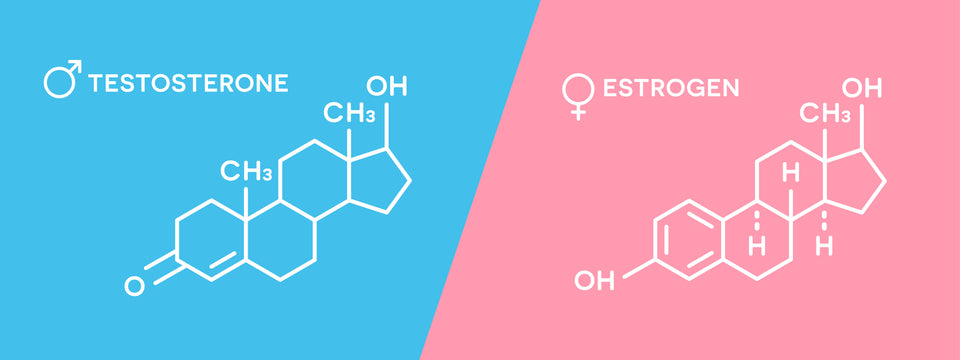We’ve all seen them.
Testosterone-boosting supplements that promise incredible muscle growth, energy levels that are through the roof, confidence, leanness, and a million dollars in the bank.
Such products sell incredibly well, especially to young guys, because we’ve always associated testosterone with manliness, health, and a fantastic physique.
Sadly, most testosterone boosters don’t do much for us.
The good news is, we can raise our testosterone naturally. But first:
What Is Testosterone?
Testosterone is the primary sex hormone in men, and it’s almost entirely produced in the testes of men and ovaries of women. Testosterone is also an anabolic steroid hormone. Meaning, it plays a massive role in our overall growth and development.
Men tend to have 15 times more testosterone than women, which is the primary thing that accounts for the significant differences between the two sexes. Men tend to have:
- More muscle, strength, and bone mass
- More body hair
- A deeper voice
Testosterone is also vital for:
- Sexual drive and erectile health
- Sperm quality and production
- Well-being, energy, and cognitive function
- The production of red blood cells
Lower testosterone levels (particularly in men) are associated with:
- Mood swings and depression
- Anxiety and lack of confidence
- Low energy, a decline in athletic performance and muscle loss
- Low cognitive function
- Low sex drive and erectile dysfunction
- Low sperm count
What Are The Physiological Ranges Of The Hormone?
In the previous point, we briefly mentioned that men tend to have 15 times more testosterone than women. The physiological ranges are:
Men
| Age 15 to 16 | 100 to 1,200 ng/dL |
| Age 17 to 18 | 300 to 1,200 ng/dL |
| Age 19 to 39 | 264 to 916 ng/dL |
Women
| Age 17 to 18 | 20 to 75 ng/dL |
| Age 19 and over | 8 to 60 ng/dL |
As you have probably gathered, testosterone is much more important for men than it is for women. Typically, when testosterone levels fall below 300 ng/dL, men are diagnosed with hypogonadism and need medical attention to treat the condition.
The good news is, for the average and healthy individual, testosterone can be increased and maintained through some simple lifestyle improvements.
How to Increase Testosterone Levels Naturally
Here are the two most effective tactics you can use to elevate (and maintain) your testosterone:
1. Get Enough Sleep
Let’s face it:
Most of us don’t sleep nearly as much as we should. Aside from the many adverse effects of sleep deprivation (such as impaired cognition, decreased ability to build muscle, and decreased athletic performance), it seems that the lack of sleep also impacts testosterone.
In one study from 2011, researchers found that when young and healthy men decreased their sleep from 8 to 5 hours per night, they experienced a drop of ten percent in testosterone.
Another study on older men found that subjects who slept for about four hours per night had roughly half the average testosterone levels when compared to those who slept for eight.
So, the first step to optimal testosterone is to place more attention on our sleep and aim to get at least seven hours per night.
2. Eat Nutritious Foods And Get The Right Supplements
To make sure that our nutrition does not negatively impact testosterone, we need to cover two criteria:
- Make sure to consume a healthy balance of dietary fats, complex carbs, and protein.
- Make sure to get a wide range of vitamins and minerals.
For most people, covering the first part is not a big issue. But, where many people mess up is with their micronutrient intake. More specifically, with zinc and vitamin D.
Zinc is a mineral that appears to play a vital role in testosterone production. Several studies have shown that adequate zinc is positively associated with higher levels of testosterone.
Vitamin D also appears to play a vital role in optimal testosterone production. In one study, researchers concluded:
“Regardless of this independent link, hypovitaminosis D and androgen deficiency are markers of poor health..”
One of the best things you can do is consume a wide range of fruits, veggies, grains, nuts, seeds, meats, seafood, grains, and such. On top of that, if you suspect that you might be deficient in vitamin D or zinc, you can get some blood work done. If that is the case, then you can supplement with them on top of your already existing diet.

Leave a comment